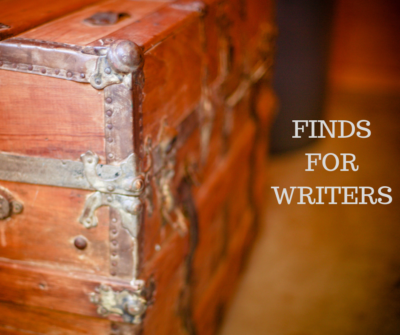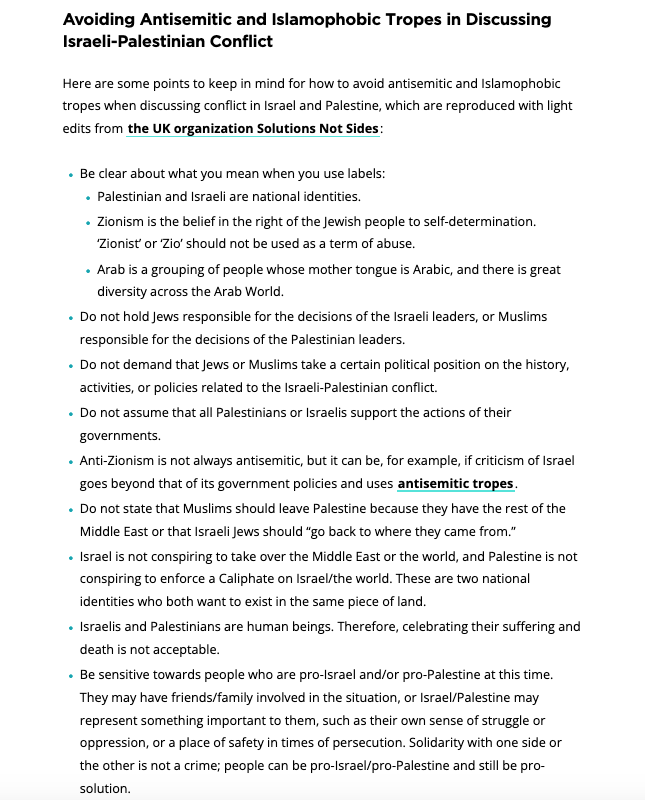Finds for Writers

Most Fridays the Practicing Writing blog shares writing and publishing resources, news, and reflections to peruse over the weekend. But it’s been an excruciating week for so many of us. And frankly, I’ve paid next-to-no attention to garden-variety news from the writing and publishing spheres.
On Wednesday, however, I received an email from Facing History and Ourselves, a Boston-based global nonprofit organization that I’ve admired for many years. The email introduced a “mini-lesson” titled “Processing Attacks in Israel and the Outbreak of War in the Region.”
The resource isn’t perfect. (What resource is?) But one of its segments impressed me as something that, though intended for educators and students, could be clarifying for writers as well, in our work and in the rest of our lives. It’s a section titled “Avoiding Antisemitic and Islamophobic Tropes in Discussing Israeli-Palestinian Conflict.”

- On graduating into a pandemic: a newly-degreed freelance journalist (Julia Métraux) reflects.
- Coming soon: CUNY’s free (and, this year, virtual) Chapbook Festival.
- From Writer Beware: “You’ll find this post useful not just as an amusing account of unmasking a fraud, but as a series of tips on what should ring warning bells when you’re evaluating an agency’s website.”
- In which Lauren Oyler makes the case for semicolons. (I would have run across this in this weeken’d’s New York Times Magazine, but Jane Snyder mentioned it first.)
- And you’ll find freshly curated Jewish-lit links over on My Machberet.
Have a great weekend, everyone.
Ever since I’d first heard of the war on semicolons, I’ve made sure to include at least one in every story I write; they’re a useful piece of punctuation and a sign of a basic mastery.
I love this comment!
Semicolons are very useful; they allow one sentence to contain two related thoughts.
Exactly!
Hmm, I’ve divested myself of semicolons as I’ve become more and more American. Simple, direct, bottom line, no fuss, we’re in a rush, call everyone by their first name, no deference, no nuances.
I’m glad to be reminded of this wonderful helper. Think I’ll find a good home for it in poems.
When I was a grad student grading English placement essay exams, one of my colleagues said that he recommended that any student who used a semicolon correctly be placed in an honors section. He may have had a point (or not). Either way, long live the semicolon!
It’s wonderful to see all the love for semicolons here!